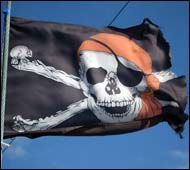
ABOVE: Ian Chow
Ian Chow, an Australian expatriate living in New Guinea and who is the managing director of the Lae Biscuit Company in Lae, New Guinea,*Â pleaded guilty to charges in Australia that he illegally exported ammunition components to New Guinea. His sentence may surprise those here in the U.S. used to seeing export defendants walloped with 5 year sentences for export violations. Mr. Chow was ordered to pay $10,000 to a charity and sentenced to a 12-month good behavior bond. (A good behavior bond is an Australian form of probation where the defendant is fined rather than jailed if he misbehaves.)
Apparently the sentence was based on testimony the court heard of the motive for the shipment of the ammunition components to New Guinea:
Chow took a short cut by shipping the items to PNG without permission from authorities, as the shooting club and police officers in Lae were short of ammunition when Chow’s house burnt down in February last year. Chow kept ammunition for the club at his house and it was destroyed in the fire.
You’d think that the Lae police might keep their ammunition somewhere other than the house of the guy who runs the local cookie company, but I have to imagine that many other things are done in an unconventional manner in New Guinea.
*An interesting bit of trivia: the Lae airport was the last place Amelia Earhart was seen alive.

 Posted by
Posted by  Category:
Category: 

 Yesterday the United Nations, by a lopsided 154-3 vote,Â
Yesterday the United Nations, by a lopsided 154-3 vote, .jpg) Michèle Flournoy, a former undersecretary of defense, writes today in the Wall Street Journal in favor of export law reform in an
Michèle Flournoy, a former undersecretary of defense, writes today in the Wall Street Journal in favor of export law reform in an  According to this
According to this  The normally perspicacious Spencer Ackerman of the Danger Room at Wired, posted a
The normally perspicacious Spencer Ackerman of the Danger Room at Wired, posted a 

